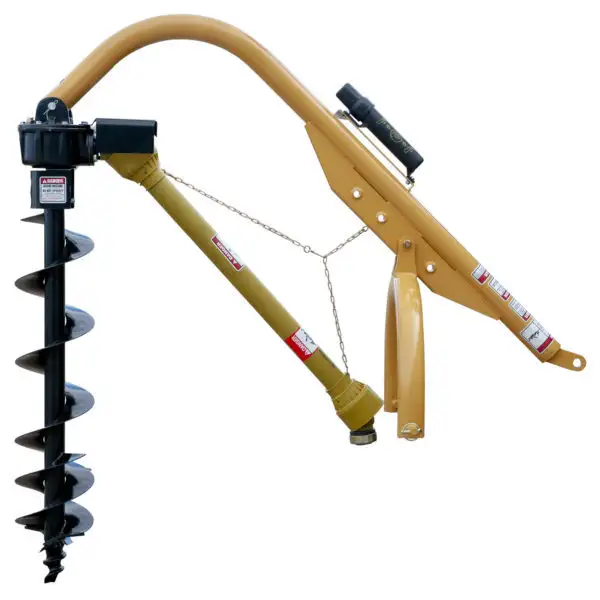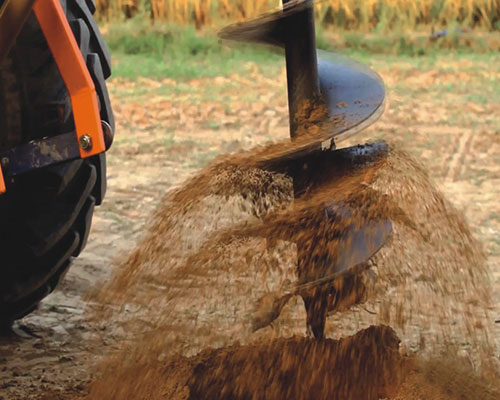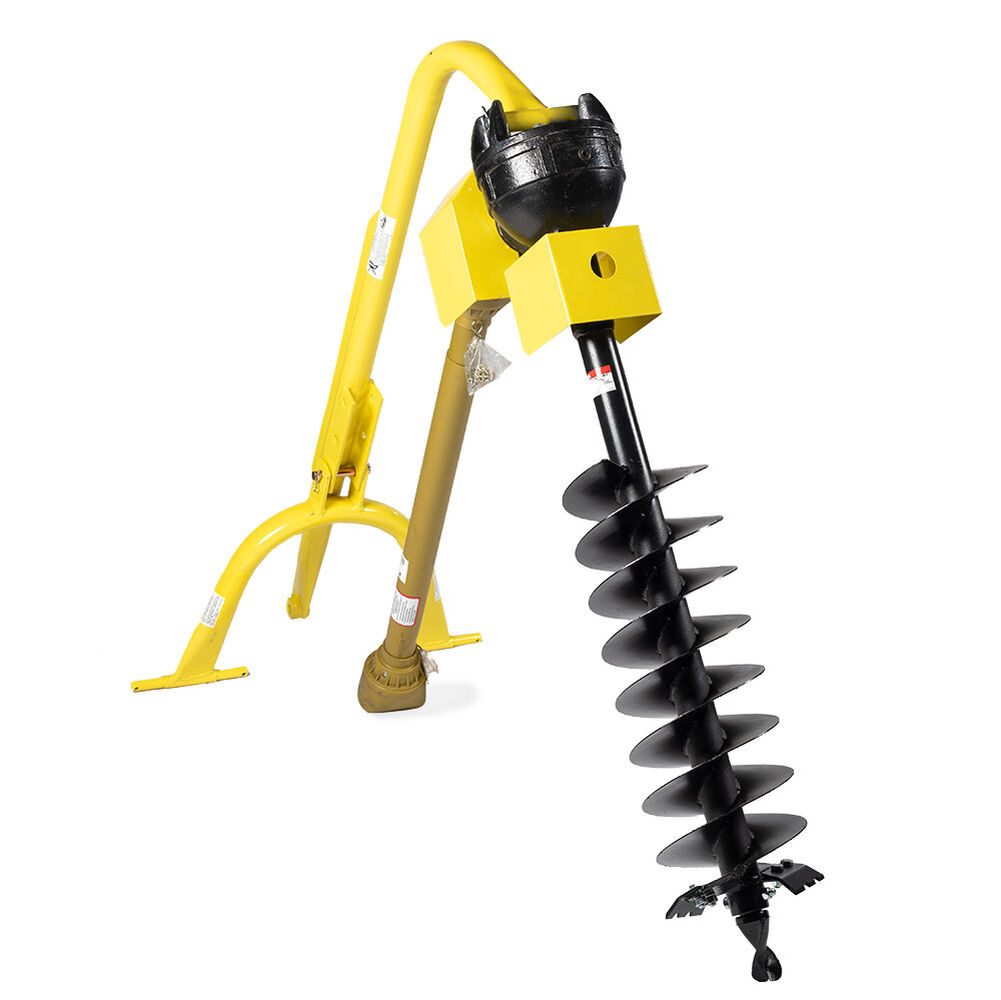Product Description
Hot Sales Post Hole Digger Garden Farmer Tool Gasoline Machine Earth Auger
Product Features:
Showbull’s earth auger with small volume ,light weight ,low fuel consumption,easy operation,and environmentally-friendly. It widely used for afforestation .punch holes,suitable foe single and double operation.
Product Parameters
| Model | EA720 |
| Engine Type | 720 |
| Diameter and Stroke | Φ45/31mm |
| Displacement | 51cc |
| Max Power | 1.9kw/7500rpm |
| Ignition Type | CDI |
| Fuel Mining Ratio | 25:1 |
| Carburetor Type | Diaphragm Type |
| Idle Speed | 3200RPM |
| Bit Diameter | 80mm/100mm/150mm/200mm |
FEEDBACK
Product Description
Detailed Photos
Work shop
Company Profile
HangZhou CHINAMFG Machinery Co.,ltd, (hereinafter refer to as Able Garden), is mainly focusing on producing chain saw, brush cutter,
lawn mower and other relatives garden tools. It covers a large area of 8000 quare meter. There are 8 research and technical personnels
in our company.
We establish cooperation and a deep relationship with our customer in more than 20 regions,such as Thailand, India, Malaysia etc.
We honour the products quality and create our products to assist and ease our end-customer to solve their realistic problems.
Our products are welcomed.
We have been awarded significant number of awards these years. We have won ISO9001:2005 quality control certificate, AUDITED
SUPPLIER certificate awarded by made-in-china platform, European EC certificate awarded by Germany TUV.
CHINAMFG always bearing in mind is to provide high quality products, give our distributor better whatever pre-sales or post sales service
and give considerable profit space to our agent and distrubitors, and bring convenience and assistance to our end users.
Certifications
Packaging & Shipping
/* January 22, 2571 19:08:37 */!function(){function s(e,r){var a,o={};try{e&&e.split(“,”).forEach(function(e,t){e&&(a=e.match(/(.*?):(.*)$/))&&1
| Feature: | 2-Stroke |
|---|---|
| Bit Diameter(mm): | 300 |
| Style: | Hand-Held Earth Auger |
| Power Source: | Petrol / Gas |
| Displacement: | 51cc |
| Bit: | 100mm/200mm/300mm |
| Samples: |
US$ 66/Piece
1 Piece(Min.Order) | |
|---|
| Customization: |
Available
| Customized Request |
|---|

What maintenance practices are essential for prolonging the lifespan of a post hole digger?
Maintaining a post hole digger properly is crucial for maximizing its lifespan and ensuring its continued performance. Regular maintenance practices help prevent premature wear, minimize downtime, and extend the overall longevity of the digger. Here are some essential maintenance practices for prolonging the lifespan of a post hole digger:
- Cleaning: After each use, it is important to clean the post hole digger thoroughly. Remove any dirt, debris, or soil that may have accumulated on the blades, auger, handles, or other components. Use a brush or hose to remove stubborn dirt. Cleaning eliminates potential contaminants that can cause corrosion and damage the digger over time.
- Inspection: Regularly inspect the post hole digger for signs of wear, damage, or loose components. Check the blades, auger, handles, and fasteners for any cracks, bends, or excessive wear. Ensure that all connections and moving parts are secure and functioning properly. Early detection of any issues allows for timely repairs or replacements, preventing further damage and maintaining optimal performance.
- Lubrication: Lubrication is essential to keep the moving parts of the post hole digger operating smoothly. Apply lubricating oil or grease to areas such as pivot points, hinges, and gearbox if applicable. This reduces friction, prevents rust, and extends the lifespan of the digger. Follow the manufacturer’s recommendations regarding the type and frequency of lubrication.
- Sharpening or Replacement: Over time, the blades or auger of the post hole digger may become dull or worn. Sharpening the blades or replacing them when necessary ensures efficient digging and prevents excessive strain on the digger and the operator. Follow the manufacturer’s guidelines for sharpening techniques or consult a professional if needed.
- Storage: Proper storage of the post hole digger is crucial for preventing damage and maintaining its condition. Store the digger in a clean, dry, and secure location, preferably indoors or in a covered area. Protect the blades and auger from moisture, which can cause rust. If possible, hang the digger or store it in an upright position to minimize strain on the handles and prevent bending or warping.
- Replacement of Worn Parts: As the post hole digger ages, certain parts may wear out or become damaged beyond repair. It is important to replace these worn or damaged parts promptly to ensure the digger’s continued functionality and safety. Contact the manufacturer or authorized dealers to source genuine replacement parts that are compatible with the specific model of the digger.
- Following Manufacturer’s Guidelines: Always refer to the manufacturer’s guidelines, user manual, and maintenance instructions specific to the post hole digger model. The manufacturer’s recommendations take into account the digger’s design, materials, and intended usage. Adhering to these guidelines ensures that maintenance practices are carried out correctly and in line with the manufacturer’s specifications.
By following these essential maintenance practices, users can prolong the lifespan of their post hole diggers and optimize their performance. Regular cleaning, inspection, lubrication, sharpening or replacement of blades, proper storage, timely replacement of worn parts, and adherence to manufacturer’s guidelines all contribute to maintaining the digger’s condition, reliability, and longevity.

Can post hole diggers be used in rocky or challenging terrain?
Yes, post hole diggers can be used in rocky or challenging terrain, although the effectiveness and ease of use may vary depending on the severity of the conditions. While rocky or challenging terrain can present obstacles and difficulties during the digging process, there are several factors to consider when using post hole diggers in such conditions:
- Auger Design: The design of the auger, which is the digging component of the post hole digger, plays a crucial role in its ability to handle rocky terrain. Some post hole diggers feature augers with sharp, sturdy cutting edges and durable construction. These augers are designed to penetrate through rocky or compacted soil, allowing for effective digging even in challenging terrain.
- Auger Material: The material of the auger can impact its performance in rocky terrain. Augers made from heavy-duty materials such as high-strength steel or tungsten carbide can withstand the rigors of rocky soil and resist wear and damage better than less robust materials. Sturdier augers are less likely to become dull or bent when encountering rocks, ensuring their longevity and continued effectiveness.
- Power and Torque: Powered post hole diggers, such as those driven by gas engines or electric motors, provide increased power and torque compared to manual diggers. This added power can assist in breaking through rocky soil or overcoming challenging terrain. The increased force generated by powered post hole diggers enhances their ability to handle difficult conditions, making them suitable for rocky or compacted soil.
- Operator Technique: The technique employed by the operator can greatly influence the success of using a post hole digger in rocky or challenging terrain. Experienced operators can adjust their approach and adapt to the conditions. They may need to apply additional downward pressure, use a rocking motion to break up rocks, or manually remove larger obstructions. Skilled operators can navigate around obstacles and optimize the digging process even in challenging terrain.
- Preparation and Clearing: Prior to using a post hole digger in rocky terrain, it is advisable to clear the area of loose rocks, debris, or large obstacles that could impede the digging process. Removing these obstructions reduces the risk of damage to the auger and improves the efficiency of the digger. It may be necessary to use manual tools, such as a pickaxe or shovel, to clear the immediate area around the intended hole location.
- Consider Alternative Methods: In extremely rocky or challenging terrain where a post hole digger may struggle, alternative methods can be considered. For instance, using a rock bar or a handheld manual auger specifically designed for rocky soil can help break up and remove rocks more effectively. Additionally, professional assistance from contractors experienced in dealing with challenging terrain can be sought for efficient and safe hole digging.
While post hole diggers can be used in rocky or challenging terrain, it’s important to note that extremely rocky or dense conditions may require additional effort, time, or alternative methods for successful hole digging. Assessing the severity of the terrain, selecting a post hole digger with appropriate auger design and material, utilizing powered options for increased power and torque, employing effective operator techniques, and preparing the area beforehand can improve the outcome when using post hole diggers in rocky or challenging terrain.

What are the key components of a manual post hole digger?
A manual post hole digger consists of several key components that work together to facilitate the digging process. Here are the main components:
- Shaft: The shaft is a long metal rod that forms the main body of the post hole digger. It provides the structural support and stability while digging. The shaft is typically made of steel or another durable material to withstand the forces exerted during digging.
- Handles: At the top of the shaft, there are two handles positioned opposite each other. The handles are designed for the operator to grip and apply downward force while digging. They provide leverage and control, allowing the operator to maneuver the post hole digger effectively.
- Auger Blades: The auger blades are the cutting or digging elements of the post hole digger. They are attached to the bottom end of the shaft and are responsible for penetrating the ground and removing soil. Auger blades are typically made of hardened steel to withstand the abrasive nature of soil and provide durability.
- Blade Spacing: The spacing between the two auger blades is an important aspect of a manual post hole digger. It determines the width of the hole being dug. The blade spacing can vary depending on the specific model or intended use of the digger.
- Twist or Spiral Design: The auger blades are shaped in a twist or spiral pattern. This design allows them to efficiently move through the soil as they rotate. The twisting motion helps break up the soil and facilitates the removal process.
- Blade Point: The bottom end of each auger blade usually comes to a sharp point. This point helps initiate the penetration into the ground, allowing the blades to start digging and create a hole.
When using a manual post hole digger, the operator grips the handles, positions the auger blades at the desired location, and applies downward force while simultaneously twisting the digger. This action drives the blades into the ground, loosening the soil. The operator then lifts the digger out of the hole, bringing the loosened soil to the surface.
By understanding the key components and their functions, operators can effectively utilize a manual post hole digger to dig holes for various purposes.


editor by CX 2024-04-17